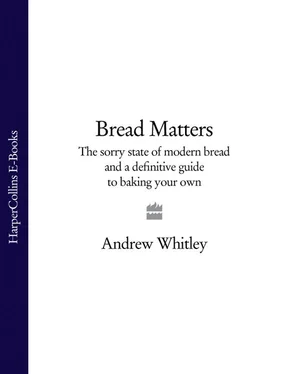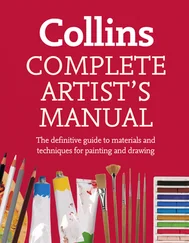It seems that sensitivity to gluten and wheat is like an iceberg. The visible part is composed of coeliacs whose condition is diagnosed by well-established tests and whose only treatment is a complete avoidance of gluten. Below the surface is a much larger group of people who have a sensitivity to wheat with varying degrees of severity, from mild discomfort when consuming bread to a condition known as ‘wheat-dependent exercise-induced anaphylaxis’ 1.
The strange thing is how recent all this is. Coeliac disease was first diagnosed in the 1950s, but widespread wheat intolerance emerged less than 20 years ago. At almost the same time, people started talking about an invasive strain of yeast called Candida albicans, which caused joint pain and digestive discomfort.
For a baker, this came as quite a shock. For 13 years or so I had been selling a range of wheat breads raised with yeast without once hearing about wheat or yeast intolerance or allergy. Suddenly people started ringing up asking for breads made without wheat or baker’s yeast – on the face of it, something of a tall order, given that the remaining ingredients of bread are just salt and water. Luckily, I was just developing a sourdough rye bread that contained no wheat and was raised using a spontaneous fermentation (lasting about 24 hours) of ‘wild’ yeasts present in the flour. Customers tried it and found that their digestive problems were eased. That was the first in a long line of products made without wheat for a market that had appeared from nowhere. Call it anecdotal (the word opponents use when your argument rattles them), but the evidence was clear: more and more people were buying products specifically because they didn’t contain wheat, or industrial yeast, or both. The bread on offer in the shops seemed to be making them ill.
British industrial bread commands little respect. This isn’t surprising when it is promoted with such mixed messages. Some loaves, described as having ‘premium’ qualities, seem barely distinguishable from others being sold at less than the price of a postage stamp. ‘Healthy-eating’ brands, adorned with images of nature and vitality, make detailed claims about the virtues of this or that added nutrient. But the big bakers keep quiet about nutrition when pushing their ‘standard’ loaves, which still account for over half of the market and are sold on price alone.
You might think that keeping prices down would be a good way to increase sales. But with bread, low cost and low quality have become so intertwined that conventional economics are turned on their head.
‘The Irish bread industry is driven by spread sheets and low prices,’ commented Derek O’Brien, head of the National Bakery School in Dublin, in 2004. ‘We produce some of the least expensive bread in Europe. But the result? Our bread consumption is one of the lowest in Europe. This is an appalling situation, particularly for the remaining number of smaller bakers, because their future is to a great extent dictated by the industrial baker.’
Many small bakers in the UK would recognise this situation. When low cost becomes below cost, an unseemly race to the bottom is inevitable. In the late 1990s I was told by the chief bakery buyer of one of Britain’s leading supermarkets that the cost of reducing the price of a standard 800g loaf of white sliced bread from 17p to 7p (in line with her main competitor) would be £400,000 a week – a sum that might have been better invested in promoting good food. Two of the main bakeries supplying the cheapest ‘value’ bread went spectacularly bust in 2004-5. Since then, the remaining large bakers have had some success in moving away from low-cost bread and even the supermarkets seem to have realised that loss-leading with something as vital as bread does them little credit. But it will take more than clever branding or a little soya, linseed and omega-3 to dispel the prevailing image of British bread culture as one dominated by pap.
If that seems a harsh judgement, take a look at what actually goes into your daily bread.
In 1961 the British Baking Industries Research Association in Chorleywood, Hertfordshire, devised a breadmaking method using lower-protein wheat, an assortment of additives and high-speed mixing. Over 80 per cent of all UK bread is now made using this method and most of the rest uses a process called ‘activated dough development’ (ADD), which involves a similar range of additives. So, apart from a tiny percentage of bread, this is what we eat today.
The Chorleywood Bread Process (CBP) produces bread of phenomenal volume and lightness, with great labour efficiency and at low apparent cost. It isn’t promoted by name. You won’t see it mentioned on any labels. But you can’t miss it. From the clammy sides of your chilled wedge sandwich to the flabby roll astride every franchised burger, the stuff is there, with a soft, squishy texture that lasts for many days until the preservatives can hold back the mould no longer. If bread forms a ball that sticks to the roof of your mouth as you chew, thank the Chorleywood Bread Process – but don’t dwell on what it will shortly be doing to your guts.
This is Britain’s bread: a technological marvel combining production efficiency with a compelling appeal to the lowest common denominator of taste. It is the very embodiment of the modern age.
Below is a breakdown of a typical Chorleywood Bread Process loaf 2. Only the first four ingredients in the table – flour, water, salt and yeast – are essential to make bread. In fact, even yeast (as an added ingredient) is unnecessary for breads made with natural leavens or sourdoughs. Bread made with these three or four simple ingredients was the basis of my bakery business for 25 years. So it is reasonable to ask: are all those other ingredients necessary? And, if not, what are they doing in our bread?
Read on and judge for yourself.
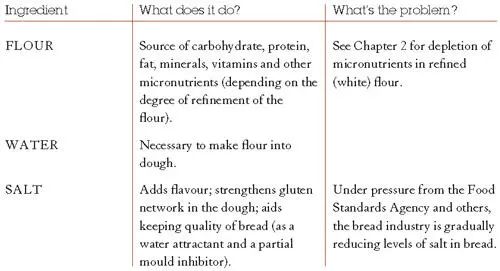
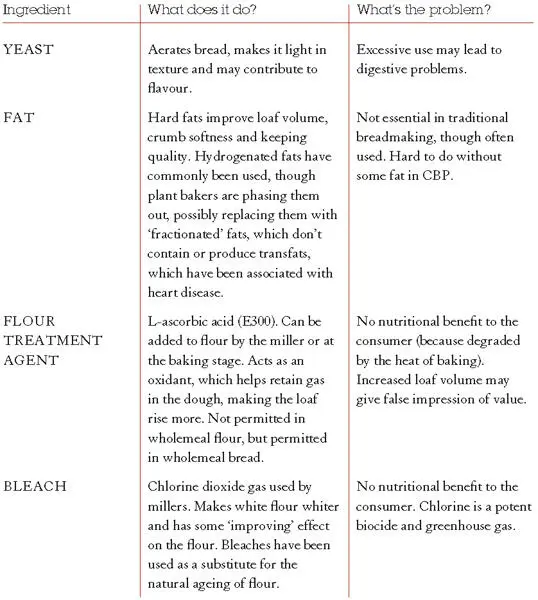
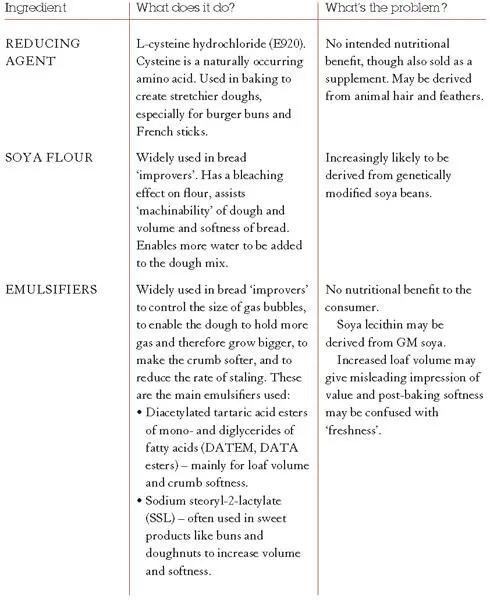
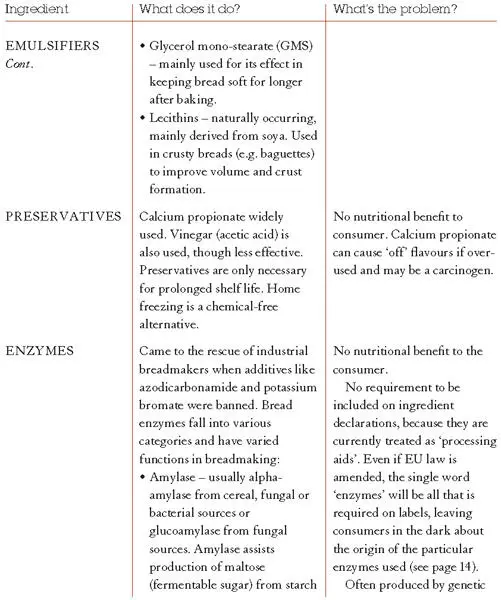
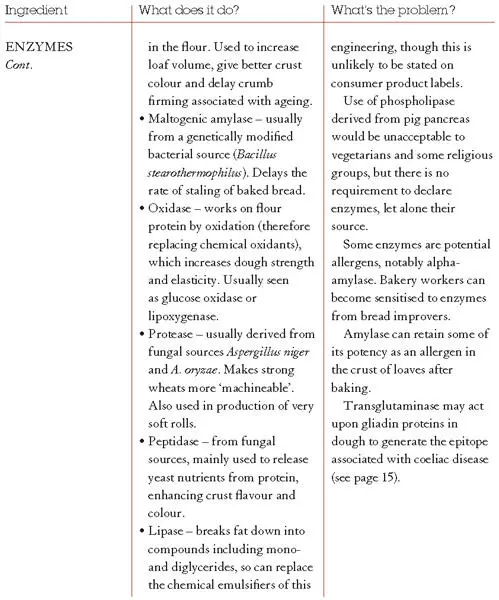
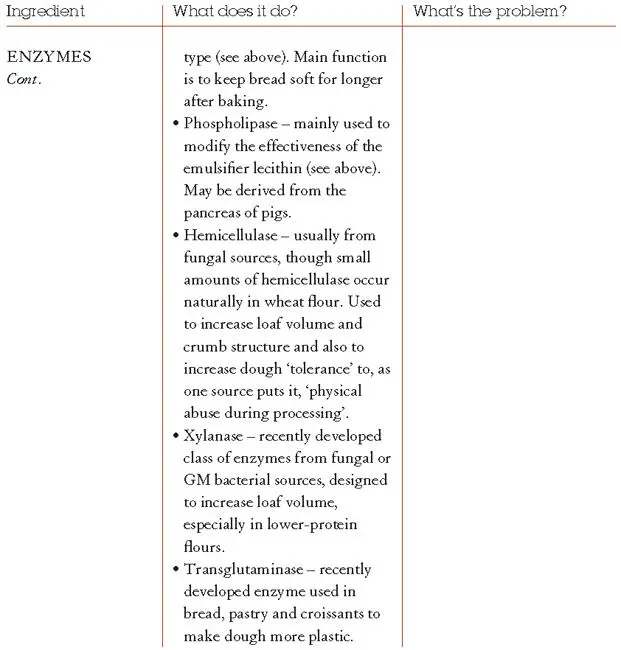
If you are unnerved by all the chemical names, you may be assured that the ingredients and additives listed above have received appropriate regulatory approval. Assured, but not reassured. The same could have been said 20 or 50 years ago, when the list would have contained chemicals that have since been banned. Safety assurance has a short shelf life. The development of modern emulsifiers, and especially of the newer bakery enzymes, was given considerable impetus by the withdrawal of the oxidising ‘improver’ potassium bromate, which after many years’ use was discovered to have carcinogenic potential (it is still used in some countries) 3.
Читать дальше
